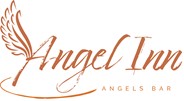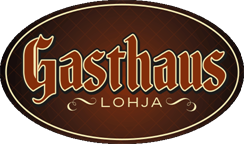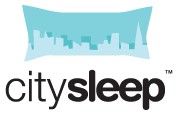A reduction in your property’s occupancy can be a worrying time as you struggle to work out how to stimulate business. For many hotels (you are not alone) they will also share the same experience of low demand periods or an off peak season.
So it can be very tempting to think that slashing rates will sell more hotel room nights and therefore help to increase room revenue. While it may sell a few more room nights, a discounting strategy rarely generates sufficient sales to offset the reduced revenue and the shift in a customers’ value perception of your hotel or the destination.
In the short term it could trigger a price war and in the longer-term harm your pricing integrity, leading to resistance in any rate increases when markets are better. Lower rates don’t necessarily create extra demand; it may just temporarily shift price-sensitive business.
A more effective option is to focus on adding value, to be inventive with the rate packages you create, to explore different market segments and be innovative with your marketing activities. It is also a good time to encourage more direct bookings on your website, by promoting exclusive benefits to those guests that do book direct or convert those that come from other third party channels.
Before you address your occupancy challenges, you first need to identify your hotel’s occupancy trends so that you get a clear picture of what you need to be prepared for. Occupancy trends should be matched as well with the booking behaviour of your guests – for example how they booked, which channel they used, how long in advance did they book, etc.
A review of your hotel’s annual occupancy forecast should provide important insights into those periods where room nights are steadily declining or consistently low. If this is around public holidays, make sure to check the dates going forward as they may be subject to change.
It is critical to know which seasons, months, weeks and days trend as being low occupancy. Depending on the booking behaviour of your guests around these periods it will help you understand how much in advance you need to execute your activities so that you do not miss your prospective guests “booking window” – too far in advance if you make an offer then they will not be thinking about it, and leave it too close to the period and they may have already made alternative arrangements.
There are companies that can offer benchmark services, providing statistics on hotels in your competitor set. The information is aggregated so you cannot see who the individual hotels are but it does give another layer of business intelligence to help you forecast what demand conditions could be like, based on past and current circumstances.
Tracking your occupancy trends will help focus your marketing strategies. Below we have listed seven ways in which you can stimulate business when you experience low demand periods:
1. Use metasearch
A metasearch engine (or aggregator) is a search tool that sends out queries to other search engines and then collects that data to produce its own results. Cost-comparison sites that aggregate hotel properties, also known as metasearches such as Expedia and Skyscanner can be a part of your distribution strategy. Originally these websites presented travelers with a selection of hotel room choices before sending to an OTA for booking, but now they have evolved to include booking buttons directly within the results.
Metasearch engines allow smaller properties to be on the same playing field with larger hotels or chains. Rates from your website are presented alongside OTAs as a part of the guest’s booking options, which means there is a better chance that a customer will book directly.
As a small hotel owner, by using metasearch engines, you will reduce your distribution costs and drive revenue. Meta search works as a pay-per-click (PPC) system, which is usually less costly than a percentage-based commission.
Metasearch enables small hotels to combine current promotions with real time room availability and rates, as well as adjust the pricing when needed instantly. This empowers hotel owners to meet their customer’s demands and provide them with all the information they require to book their room at the time they are looking.
The metasearch websites create an additional advertising opportunity that can showcase your product on multiple portals and start to create an online community with guests through their customer reviews, ratings and photos shared.
2. Online Travel Agents (OTAs)
OTAs are the key to online distribution for any hotel, small or large. They can help you reach markets that you don’t typically have access to, and guests are often more willing to book a destination that they have not been to before through an OTA because they need to feel a level of comfort that the OTA provides. Because OTAs focus on marketing to a much broader audience, this also expands the number of potential guests in an international market that typically would be out of reach for many independent hoteliers.
OTAs are a great channel for building brand recognition and incremental revenue, and need to be thought of as a part of your distribution mix rather than as the sole channel to rely on. This needs to be taken into account when you are reviewing your allocation of rooms to an OTA and managing the flow of reservations considering the time before and after a low demand period and the typical booking patterns of your business guests so that you do not dilute the potential impact of direct bookings.
Once a guest arrives via an OTA booking make sure you take responsibility to convert that guest to book direct, for example offer them a special rate code allowing them to book direct at a discount for their next trip.
Prospective guests are keen to know as much as possible about a property before they make a reservation, and their research will more probably include a visit to checkout your hotel's website – so you need to make sure you are set up for conversion for those travelers that are shifting between channels.
OTAs provide the traffic and offer an introduction to your website, to make an impact you need to ensure that your property is being represented in a professional way with hi-res images, easy to understand room types and features and local information that adds value to the content a visitor can read about you on an OTA site.
3. SEO (Search Engine Optimization)
Effective SEO is important to raise the visibility of your hotel online. To increase the levels of visitor traffic to your hotel website a hotel must ensure that they are properly set up to be visible on search engine results pages (SERPs).
SEO allows your hotel to improve in search engine rankings and ultimately aim to rank higher up in the SERPs.
The benefits of optimizing your hotel for search include:
- Keeping your hotel ahead of the competition
- Establishing credibility and authority
- Improving hotel customer loyalty and engagement
- Increasing hotel brand awareness by reaching a wider audience
- Generating interest in your business
- Building traffic to your hotel website
By implementing an effective SEO strategy, such as keyword placement and adhering to meta guidelines, you can increase your search engine ranking and optimise visibility. You can also support your SEO by adding a blog providing context to the keywords that you are using that will show Google and the other search engines that you have relevant and valuable content.
Your SEO strategy should be regularly assessed and analyzed, to check what you are doing ask yourself the following:
- Do you have a keyword strategy?
- Have you checked your on-site optimization?
- Have you mapped out the flow a website visitor would take when on the site?
- Do you have a contentmarketing strategy?
- Have you checked the backlinks from other websites to your website?
- Do you regularly check the analytics?
4. Creating promotional packages
While some cities may experience peak and off peak seasons, there is usually something going on in the city locally or in the region that draws in potential customers that you can create a package around if demand is at a low point.
Creating a package allows you to mask the room rates with features, which add value to the stay at your hotel. This makes it attractive to a guest for the additional benefits that they will enjoy and means that as a property you are competing on service and value rather than price. Providing value in this way is a great tactic to also differentiate your property.
In the long run it is better to have integrity with your price positioning, that it does not wildly fluctuate and that prospective customers are not waiting to book your hotel until the last minute expecting a price reduction.
5. A customer retention strategy
By offering your guests the chance to book your property directly it provides an opportunity to build a marketing database by inviting guests to sign up to regular communications. Offering discounts and coupons is a great way to attract new guests and reward loyal ones, and can be an incentive to attract business travelers if you are looking to stimulate mid-week business.
You can try to segment the emails in your database to customise your packages and discounts. Create some insights based on the business intelligence that you can gather from your database, look at developing a conference and meetings package, or stay two nights and get the second one at a discount, offer dining discounts if they eat at your property, etc. The anchor for all these offers can be based around mid-week travel during a low demand period.
It makes sense to also have a look at segmenting the reason for travel, so if for example you had a corporate account staying with you that had an “autumn kick-off” session – there is no harm in reminding that customer that you have some new features, great rates and an even better guest experience awaiting them.
6. Who would be your target audience?
Hotels generate a large amount of data on their guests on a daily basis that can be used to produce business intelligence. This data can then be helpful in improving your hotel’s marketing strategy and approach to revenue management.
The data is collected on the basis of the guest behavior and although based on past activities it can be used to forecast what possible future behavior may be. So for example your business intelligence can be used to forecast the low and high demand seasons. A property business plan would then need to take into account different activities to either trigger activities during low demand periods and increase yield and rates at peak times.
Business intelligence can be combined with the insights that you have on your guests. If you have a database and can segment by type of business, it opens up an opportunity to create campaigns to a targeted audience with a relevant offer.
A profile or buyer persona of your target audience for example for business travelers will help identify their search behaviour, demands, channel preferences, rate sensitivity and why your property meets their needs. Having this type of profile and the insights from business intelligence will determine what actions are needed, for which target audience, what the offer should be, how it should be communicated and how long in advance of the need period.
7. Develop partnerships for added value
Working with partners will help you to create added value features and benefits that are difficult to put a precise cost on but will help elevate the perception of your packaged rates.
Partners can offer a brand endorsement for your hotel, offer access to customer contacts that you may not normally have, help you to learn more about customer behaviour and differentiate you with brand positioning rather than on price.
Take Away
HappyBooking have always focused on creating a user-friendly booking system to help property owners improve their revenue performance with a direct booking engine, generate more profit by reducing costs and freeing up your time. Take a quick tour to see how it works - click here.
To help you find the time to improve your revenue management skills, of which managing occupancy is one – HappyBooking have written together with John Kennedy a Basic Revenue Management Guidelines for hotels, hostels, apartments and those that sell meeting rooms.
Drop us an e-mail here to get the free guide.
HappyBooking is first and foremost a property management system. That means they help you with the boring admin and automate tedious tasks giving you more time to manage your business and interact with guests. On average customers can get back up to 10 hours per week – think what you could do with that extra time!
Our guest blogger is John Kennedy.
John is a hospitality consultant, dedicated to helping increase revenue through marketing, revenue management and efficient operations. www.kennedyandersson.com
Image source: www.freepik.com



